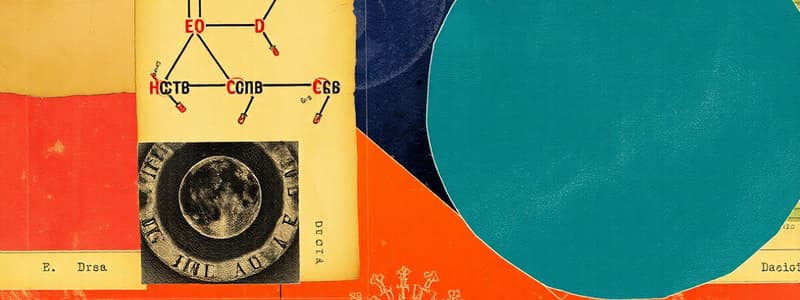Podcast
Questions and Answers
What characterizes Group I hormones?
What characterizes Group I hormones?
- They cannot pass through cell membranes.
- They are fat-soluble. (correct)
- They are water-soluble.
- They are primarily stored in the liver.
Which type of hormones are primarily classified as Group II hormones?
Which type of hormones are primarily classified as Group II hormones?
- Hormones that are water-soluble. (correct)
- Hormones that have a slow response time.
- Hormones that can easily cross cell membranes.
- Hormones that require carrier proteins for transport.
Which of the following is NOT true about lipophilic hormones (Group I)?
Which of the following is NOT true about lipophilic hormones (Group I)?
- They interact with intracellular receptors.
- They are stored in the bloodstream. (correct)
- They do not require a transportation medium.
- They can easily enter target cells.
Which statement best describes Group II hormones?
Which statement best describes Group II hormones?
How are Group I hormones typically characterized in terms of solubility?
How are Group I hormones typically characterized in terms of solubility?
What must target cells possess in order for hormones to exert their effects?
What must target cells possess in order for hormones to exert their effects?
What is the consequence of hormone-receptor binding in target cells?
What is the consequence of hormone-receptor binding in target cells?
How can hormones affect different target tissues?
How can hormones affect different target tissues?
Which statement best describes the role of hormone-receptor binding?
Which statement best describes the role of hormone-receptor binding?
Which mechanism ensures that a hormone can only affect certain cells?
Which mechanism ensures that a hormone can only affect certain cells?
Flashcards are hidden until you start studying
Study Notes
Hormone Classification
- Hormones are classified into two main groups: Lipophilic (Group I) and Water-soluble (Group II)
- Lipophilic hormones are fat-soluble and require specific receptors on target cells for binding
- Water-soluble hormones dissolve in water and can easily interact with cell membranes
Lipophilic Hormone Action
- Lipophilic hormones trigger a signal transduction cascade upon binding to their receptors
- These hormones can have different effects on different target tissues
- Examples:
- Membrane receptors are primarily found for protein, peptide, and catecholamine hormones
- Cytoplasmic receptors are common for steroid hormones
- Nuclear receptors are also involved in hormone action
Water-Soluble Hormone Action
- Water-soluble hormones bind to receptors on the cell surface
- These receptors can be G protein-coupled receptors or enzyme-linked receptors
- Binding triggers a second messenger system, leading to various cellular changes
Negative Feedback Loops
- Negative feedback loops are crucial for regulating hormone production
- Example: High levels of cortisol in the blood inhibit the release of CRH and ACTH, preventing further cortisol production
Hormonal Disorders
- Abnormal hormonal production can lead to diseases:
- Hormonal excess: Often causes severe disease
- Abnormal hormone production: Resulting from gene mutations
- Disorders of hormonal receptors: Can disrupt hormone action
- Abnormalities of hormonal transport or metabolism: Can affect delivery and function of hormones
Studying That Suits You
Use AI to generate personalized quizzes and flashcards to suit your learning preferences.



